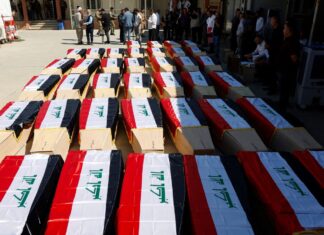ISTANBUL, Turkey (Middle East Eye) —Supporters of the pro-Kurdish People’s Democratic Party (HDP) fear the detention of the party’s co-leaders and several other MPs earlier this month may have closed the door to any possible resumption of the peace process between the Kurdistan Workers’ Party (PKK) and the Turkish state.
Selahattin Demirtas and Figen Yuksekdag and 10 more of the party’s 59 MPs were arrested on November 4 for what the government said was their failure to attend court to answer accusations about their alleged links to the banned PKK.
The accusations leveled against HDP lawmakers include attending the funerals of PKK militants, using municipality trucks to carry deceased fighters from the YPG (the Syrian offshoot of the PKK), as well as making statements in support of terrorism and funding “terrorist activities.”
The PKK has waged a decades-long guerrilla war against Turkey for greater Kurdish autonomy, primarily in the Kurdish-majority southeast of the country, and is considered a terrorist organization by Ankara, the European Union and the US.
The HDP was founded in 2012 as the successor to a long line of pro-Kurdish parties such as the Democratic Society Party (DTP) and the Peace and Democracy Party (BDP), which were both banned for alleged links to the PKK.









